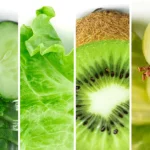The Importance of Cholesterol in The Brain
*Learn more about nutrition and the brain at www.legacy.feedabrain.com
Soon after my brain injury, I showed what my functional neurologist would consider low cholesterol on a blood test, and, as far as I was concerned at the time, this was good news. The doctors at the hospital were also not concerned about this, as Mayo Clinic says that any level of total cholesterol below 200 mg/dL is “desirable” 1. Does this mean that absolutely no cholesterol would be healthy? What is cholesterol, does it cause heart disease, and do humans need it?
Almost every time that I advocate traditional animal fats as being important brain nutrition–for everything from brain injury rehabilitation to the neuroprotective effects that prevent seizures 2, and even to learning–a concern is brought up about cholesterol. And with the scary prevailing thoughts about the dangers of cholesterol and heart disease, it is no wonder that it does. People have been told that foods like eggs, bacon, and saturated fats from meat and butter, raise our cholesterol levels; and that high cholesterol clogs our arteries and gives us heart attacks. This idea is so deeply ingrained within our culture that very few people even question it. For this reason, I would like to clarify what cholesterol is. I will also clarify what HDL and LDL are, what C reactive protein (CRP) is, and finally, I will explain my perception of how and why conventional medicine perpetuates a vilification of cholesterol. I will attempt to keep the concepts understandable to anyone with an interest in the human body by not delving too deeply into more advanced concepts, but I will include citations for more information.
Is There Such a Thing as Too Little Cholesterol?
A deficiency in cholesterol is found in a congenital condition, or a condition that one is born with, known as Smith–Lemli–Opitz syndrome (SLOS). Most conceptions with Smith-Lemli-Opitz Syndrome do not live to reach birth (are spontaneously aborted) which is strong evidence that cholesterol is essential to fertility and to the life and growth of a human being. In the rare cases where this child is not spontaneously aborted, a child is born with a plethora of facial and skeletal abnormalities, as well as mental problems like autism, hyperactivity and attention deficit disorders, as well as self-injurious, aggressive behavior, and even mental retardation. This child may also suffer from endocrine dysfunction, and serious digestive problems. The usual treatment for this syndrome has been a diet rich in cream and egg yolks, which are rich in naturally occurring cholesterol 3.
Cholesterol makes up the membrane of every cell (lipid bilayer) within every animal body, and therefore, cholesterol is one of the most important parts of every human cell 4. Cholesterol is also found at the synapse between every axon and dendrite within the brain in which communication between neurons allow the brain to control anything that you do, say, or think. This means that cholesterol is needed in order for neurons within the brain to communicate effectively, and that cholesterol is needed for synaptogenesis, or the building of new connections among neurons (connections which are especially needed after a brain injury) 5. Cholesterol is even important in digestion and is the precursor to sex hormones such as estrogen and testosterone within the body 6.
What exactly is HDL and LDL?
A concern about cholesterol is almost always followed by a statement that there is good cholesterol and bad cholesterol. What is being referred to here is HDL, or “the good cholesterol”, and LDL, or “the bad cholesterol.” HDL and LDL are acronyms for high density and low density lipoproteins. Lipoproteins are not cholesterol, but the transporters or carriers of lipid bioactive factors (materials that have a significant biochemical function). In other words, lipoproteins carry materials that are vitally important to life 7.
OK… So If Cholesterol is so Important to Life, How and Why Does it Clog Arteries?
What has been found is that clogged arteries are almost always a build up of certain kinds of LDL particles within the blood while inflammation is present. C reactive protein, or CRP, is a protein found in the blood, the levels of which have been shown to rise in response to inflammation 8. Thus, CRP is a good indicator of inflammation. In fact, CRP shows a stronger correlation to heart disease than LDL cholesterol levels 9. And even more notably, in most people, an increase in the consumption of dietary cholesterol does not seem to increase serum cholesterol (cholesterol it the blood) 13.
It seems that without inflammation, cholesterol would move freely within the blood and not clog arteries as it moves throughout the blood everywhere else, where there is not a clot. But the prevailing understanding is that if the cholesterol wasn’t there, there would be no clogged arteries. While this may be true, there would also be other problems associated with a deficiency in cholesterol like all of the devastating conditions of SLOS, but to a lesser degree.
Semi Trucks and Road Closures: Cholesterol and Clogged Arteries?
I like to think of arteries as a wide highway with six or seven lanes in which semi trucks transport goods to different locations in the body. Think of the semi trucks as lipoproteins and the goods that these semi trucks transport as cholesterol and other important bioactive factors. If all but one lane has closed on this highway, there is a traffic jam, or a clogged artery. We can get rid of all of the trucks, but supplies does not get to its needed destinations, or we can fix the road. Statin drugs reduce the number of trucks, but do not fix the road.
Another analogy that I have heard relates inflammation to a fire, and cholesterol as the firemen. Associating cholesterol with heart disease is like associating fires with firemen. We can see that every time there is a fire, firemen show up, but assuming that the firemen are the cause of fires is not at all the case. Analogously, we see cholesterol every time there is a clogged artery, which leads to heart disease, but blaming cholesterol for heart disease is like blaming the firemen for starting a fire.
With CRP being a much better indicator of heart disease than cholesterol levels, it is a wonder why we don’t use that marker, rather than cholesterol levels in the blood, as the main marker to pay attention to in assessing a risk for heart disease. Because most research is funded by pharmaceutical companies and these companies pay doctors for prescribing their medications, the current medical model makes it very hard to change the mainstream understanding, even within the conventional medical field 10.
Lipitor and other statin drugs that reduce cholesterol comprise a multi-billion dollar industry that is dependent on the vilification of cholesterol in the mainstream medical understanding 11. Cholesterol has been given a bad rap not only in the media, but in the entire healthcare system, due to the control of big pharmaceutical companies over our medical system. A multi-billion dollar industry dependent on a myth being prevalent among the medical community will spend billions of dollars to keep the truth from being heard until they can find a better, or more profitable, drug to tackle the issue.
Statin drugs lower mortality (lower deaths) among the population because they reduce the number of semi trucks (lipoproteins transporting cholesterol) to cause a traffic jam (clotting), but the road is still only one lane (due to inflammation).
What Should I Look For?
What we can do is to not worry about cholesterol as much, but when a blood test is given, pay attention to the CRP level and worry if it is in the high range: above 3 mg/L 12. I am not suggesting that someone who regularly takes a statin drug should stop. I do not think this is wise because it is important to decrease the amount of lipoproteins when there is inflammation (traffic when there is lane closures). Instead, I think that statins are useful temporarily while the cause of the inflammation is examined, and an attempt is made to heal the underlying cause. If or when the cause of the inflammation is addressed and eliminated (road is fixed), cholesterol can then move freely through the blood. Analogously, less trucks should be on a road with construction, so statins are useful in reducing the amount of traffic when there are lane closures. Less trucks, however, means that less goods can get where they need to go. The road needs to be fixed on this highway so that these trucks can transport goods effectively throughout the body, and statins may be able to be reduced or discontinued to restore the normal traffic of bioactive factors.
A statin drug does not address the cause of the lane closures (inflammation), but simply decreases the number of semi trucks (lipoproteins transporting cholesterol). Additionally, because cholesterol is required to build and maintain cell membranes, not having enough cholesterol means that there is not enough supplies for new cells to generate. For me, a low functional level of cholesterol meant that I was not providing the supplies to build new neurons or synapses within my brain. Beginning a higher saturated fat and cholesterol diet further increased my own clarity, and I began to write my story. As Public Enemy said, “Don’t believe the hype!” I would only add that you should know what the hype is and why it is hyped.
FURTHER RESOURCES:
Heart Surgeon Speaks Out On What Really Causes Heart Disease
http://www.sott.net/article/242516-Heart-Surgeon-Speaks-Out-On-What-Really-Causes-Heart-Disease
Ali Miller, RD likes total cholesterol levels to be above 170mg/dL.
Dr. Mercola and Dr. Masterjohn Talk (Video):
http://blog.cholesterol-and-health.com/2012/12/my-interview-with-dr-mercola.html
Resources:
- United States Department of Health and Human Services; National Heart Lung and Blood Institute; National Institutes of Health (June 2005). “NHLBI, High Blood Cholesterol: What You Need to Know”. nhlbi.nih.gov. Retrieved 27 March 2013.
2. http://www.ncbi.nlm.nih.gov/pubmed/20687386)
3. http://www.ncbi.nlm.nih.gov/books/NBK1143/
4. http://www.ncbi.nlm.nih.gov/pubmed/22217824
5. http://www.ncbi.nlm.nih.gov/pubmed/12648780
6. http://www.ncbi.nlm.nih.gov/books/NBK22339/
7. http://www.ncbi.nlm.nih.gov/pubmed/10521371
8. http://www.ncbi.nlm.nih.gov/pmc/articles/PMC2647195/
9. http://www.ncbi.nlm.nih.gov/pmc/articles/PMC3107411/
10. http://www.nytimes.com/2011/11/25/us/payments-to-doctors-by-pharmaceutical-companies-raise-issues-of-conflicts.html?_r=0
11. http://www.nytimes.com/2004/07/20/health/seeking-a-fuller-picture-of-statins.html?pagewanted=all&src=pm
12. http://www.nlm.nih.gov/medlineplus/ency/article/003356.htm
13. http://www.ncbi.nlm.nih.gov/pubmed/22037012?dopt=AbstractPlus





Comments
Hi Cavin
Really enjoying your writing. Regarding statins and inflammation, funnily enough I was reading this about an hour ago.
http://articles.mercola.com/sites/articles/archive/2013/06/05/elevated-iron-levels.aspx?e_cid=20130605_DNL_art_1&utm_source=dnl&utm_medium=email&utm_content=art1&utm_campaign=20130605
Statins have an anti-inflammatory effect on your body by reducing oxidative stress, which is something the drug companies tend not to disclose. The fact that statin drugs reduce inflammation, and reduce inflammatory markers like C-reactive protein, may explain why statins decrease heart attacks in some people. This benefit has nothing to do with the action of lowering cholesterol, but rather the reduction of inflammation.
In a study published in the April 2013 issue of American Journal of Public Health2, researchers found that statins improved cardiovascular outcomes at least partially by countering the proinflammatory effects of excess iron stores. In this study, the improved outcomes were associated with lower ferritin levels but not with “improved” lipid status. Researchers concluded iron reduction might be a safe and low-cost alternative to statins. An earlier study in the American Heart Journal3 also showed that people with a lower iron burden had less risk for heart attack and stroke.
Hi Honora,
I am happy that you are enjoying my writing. Thank you for sharing this! The anti inflammatory effects, and the ability to reduce C-reactive protien, of statins is important information. Do you happen to know HOW it does so? I don’t know if anyone knows. Dr. Mercola says:
“This benefit has nothing to do with the action of lowering cholesterol, but rather the reduction of inflammation.”
With inflammation still being caused by some underlying issue that the statin may not address, the reduction of cholesterol may also help temporarily prevent blockage. In other words, the benefit of having low cholesterol may prevent clogged arteries while the cause of the inflammation is addressed (if addressed), even though lowering cholesterol does not appear to promote good health.
I don’t think that anyone should just stop their prescribed statins until the inflammation is dealt with to a safe point, and I don’t think that statins address the inflammation beyond their slightly anti inflammatory affects. Cheers!
Yes, fair enough. Thanks for your reply. I might be able to ask one of our lipid specialists (Dr Peter George – His main clinical and research interests are in the molecular pathology of human disease, including thrombosis and hyperlipidaemia. He is also interested in markers of cardiovascular risk, nutrition, proteins and trace metals. Dr George has published over 100 papers in international journals.) if he knows the mechanism of anti-inflammation in statins.
I am so sorry that I did not get back to you on this until now! I would love it if you did relay that!
When you say “our” lipid specialist, what do you mean? Do you work with him? Do you work in medicine?
I’m a phlebotomist and he’s the clinical director of our lab (Canterbury Health Laboratories) so I see him round the place. He’s pretty approachable but inclines more towards banter than serious topics but I’ll give it a run past him or his nurse specialist at least if he doesn’t want to talk.
Cheers! 🙂
oooh– was looking forward to a response from Honora’s doctor. Cavin, I cam upon your writing quite accidentely, by researching Tracheostomy Rehab locations for my uncle in the city via google. Oh… my, you are somethin else. Keep on healing, and power to your mom.. From a Brooklyn mom
Thank you for this nice comment as well as the email that you sent me, Aviva. I am looking forward to your reply. Send my love to NY for me. 🙂
hmmmm…this is a fascinating topic. Suppose that you may never know what came first– an initial injury, then an inflammatory response to quell the injury, that becomes a vicious self perpetuating cycle of chronic inflammation, that affects the rest of our bodies.. So statins may not be the ‘cure all’ – but still, inflammation, could be a potential starting place or root to several chronic degenerative health issues. I’ve found that as a lay person, with a healthy dose of skepticism to modern day medicine, attending Google University, has helped me self-treat onset joint pain, through anti inflammatory herbs, or vitamins such as Boswellia, and Camu Camu. Maybe dumb, but I prefer it, to the potential of taking prescription meds that themselves have serious side affects, & then not knowing— again what came first– the side effect… or a new health issue. I just find it all fascinating. Cavin– thanks again for sharing your story, with all the details, and video. It’s helped me understand a bit of what my Uncle Al is going through, in relation to his tracheostomy. Keep getting stronger, you have a great gift for writing, and for inspiring. BTW- did you have an interest in health before your accident, or was it in response to?
Asking what came first is the game… What is the root cause? Inflammation? NO! “What is the root cause of the inflammation?” is the question.
Ya know, I edited out a piece of Skin in the Game that further explained my ideas about our commonly compartmentalized medical school of thought, which I said was analogous to a car: “For example, if your brakes are shot, the steering column is still good. If you put sugar in the gas tank and destroy the engine, the frame is still intact. If you slash the tires, your motor still runs etc…” I did not include it because it seemed to be tangential and not all that relevant to the skin post that I was writing at the time… Maybe it would have been good for this one. Here is the piece I edited out:
“What I have learned is that a machine model is hardly the case within the human body. The entire body is dependent on itself being healthy. To illustrate, if I cut my finger everyday and never cleaned the cut, it wouldn’t take too long for that finger to get infected. If I continued to cut that finger everyday and not tend to the wound, that infection would spread and affect my entire body. I would probably develop gangrene and would possibly die from the little cut on my finger that I continued to exacerbate daily. This wouldn’t happen if I were to slash the tires of a vehicle everyday… Especially if said vehicle just idled all day and someone refueled it every now and then. But even if I were bedridden, being fed by a tube directly into my stomach, and not moving, an infection would still spread.”
The point of sharing this is to illustrate the problem with the “take X to treat Y” paradigm, and to set up an argument about ant-inflammatory drug or supplement use.
Like I have said, I am all about weighing the risks vs. possible benefits of any treatment. Natural remedies tend to pose the least risk, however pills of any kind, natural or pharmaceutical, are not truly remedies. They support certain pathways, mediate inflammation, inhibit bioactivity (ie. inhibitors of any kind like SSRIs or PPIs), mess with biochemistry or work in all kinds of other ways. They can be helpful sometimes, but they are a small piece of the puzzle, so to speak.
Both drugs and supplements can be useful (though supplements are almost always less of a risk) when used to make way for the underlying issue to be addressed.
I recently updated this post and added this:
“I am not suggesting that someone who regularly takes a statin drug should stop. I do not think this is wise because it is important to decrease the amount of lipoproteins when there is inflammation (traffic when there is lane closures). Instead, I think that statins are useful temporarily while the cause of the inflammation is examined, and an attempt is made to heal the underlying cause. If or when the cause of the inflammation is addressed and eliminated (road is fixed), cholesterol can then move freely through the blood. Analogously, less trucks should be on a road with construction, so statins are useful in reducing the amount of traffic when there are lane closures. Less trucks, however, means that less goods can get where they need to go. The road needs to be fixed on this highway so that these trucks can transport goods effectively throughout the body, and statins may be able to be reduced or discontinued to restore normal traffic of bioactive factors.”
PS: My interest in health definitely came after!
I love your analogies– makes complex concepts a whole lot easier for a layperson like me to ‘get’.. But Cavin– would you agree that sometimes the root cause of inflammation may be too far gone to get to why it is happening. For instance, in the case of MS, or Parkinsons, or like in my brother-in-laws case, Crohns disease.. I’m not sure if they know whether these auto immune diseases are triggered by stress, or genetically passed down, or are some diet related, you may know though. Sometimes even if you are able to identify the root cause– like in the case of stress triggered PTSD symptoms, say like in someone like me, which they’ve said was passed down genetically from my mom who had been in the Holocaust in a concentration camp, and it manifests as low cortisol– the fight or flight syndrome. You can imagine the host of fun symptoms that come along with that, in someone who was not even there. Ha- thanks a lot mom. Well, I did finally figure out on my own (cause no one else did), that inflammation was also a side effect.. Anyways.. sorry for the lengthy comment. Still searching for answers, but really not a big issue any longer. Just triggered my interest in the subject.
Oh, I found a cardiac specialist who was happy to link me to a paper explaining the anti-inflammatory mechanism of statins. I must rark him up with an email. He actually had the paper up but then got busy and told me to email him to remind him. He couldn’t send the page as an email to me on that computer!